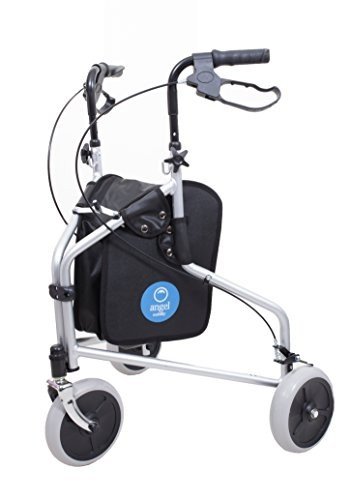The 3 Biggest Disasters In Buying Mobility Scooter History
A Comprehensive Guide to Buying a Mobility Scooter
Mobility scooters have ended up being a vital tool for lots of people aiming to improve their self-reliance and mobility. With a huge selection of models and functions available, picking the right mobility scooter can be intimidating. This article offers an informative guide to assist customers navigate their choices, examine their needs, and make a notified purchase.
Understanding Mobility Scooters
Mobility scooters are electric automobiles created for individuals who experience mobility challenges. They are especially beneficial for senior citizens, those with impairments, or individuals recuperating from injuries. Mobility scooters can vary extensively in regards to style, functions, and rates.
Kinds Of Mobility Scooters
Before embarking on a purchase, it's necessary to understand the various kinds of mobility scooters available:
Three-Wheel Scooters:
- Generally more maneuverable in tight spaces
- Lightweight and portable
- Ideal for indoor usage
Four-Wheel Scooters:
- Offer greater stability and balance
- Suitable for outside use over different terrains
- Generally have a longer battery life
Foldable/Portable Scooters:
- Designed to be easily transported and saved
- Can often suit the trunk of a vehicle
- Ideal for those who take a trip regularly
Sturdy Scooters:
- Built to accommodate larger individuals
- Frequently featured more robust features for outside use
- Normally equipped with larger batteries for prolonged variety
Factors to Consider When Buying a Mobility Scooter
1. Weight Capacity
Choose a mobility scooter that can support the user's weight. Many scooters have a weight limitation ranging from 250 to 500 pounds. mobility scooters sale is essential to ensure that the scooter can accommodate the user comfortably.
2. Range and Battery Life
The range is how far the mobility scooter can take a trip on a single charge. Common ranges differ in between 10 to 30 miles. Consider the user's daily activities and pick a scooter with an appropriate variety.
3. Scooter Dimensions
Think about the size of the scooter, including its weight and measurements. A more compact scooter may be ideal for narrow corridors and tight areas, while bigger designs provide extra stability and convenience.
4. Surface Capability
Assess where the scooter will mostly be used. If the user prepares to travel primarily on pavement, a lightweight model may suffice. However, if the user needs to pass through gravel or irregular surfaces, consider a four-wheel scooter built for off-road use.
Top Features to Look For
Comfort
- Adjustable Seats: Look for scooters with cushioned and height-adjustable seats to make sure convenience throughout travel.
- Armrests: These boost safety and support while browsing.
Security and Visibility
- Headlights and Taillights: Essential for nighttime use.
- Turn Signals and Reflectors: Improve presence and security while on the roadway.
User-Friendly Controls
- Joystick or Drive Controls: These should be user-friendly and easy to control.
- Easy-to-Read Displays: A control board that reveals battery life, speed, and distance can enhance the user experience.
Additional Features
- Storage Compartments: These provide added convenience for bring individual items while on the go.
- Weather condition Protection: Consider models with rain covers or windshields if utilized in variable weather condition conditions.
Expense Considerations
When budgeting for a mobility scooter, rates can range anywhere from ₤ 500 to over ₤ 5,000 depending on the design, functions, and brand name. Extra costs might consist of:
- Extended Warranty: Protects versus defects and can conserve money in the long run.
- Devices: Optional functions, such as updated seats, lights, or storage services.
Function
Cost Range
Fundamental Models
₤ 500 – ₤ 1,500
Mid-Range Models
₤ 1,500 – ₤ 3,000
High-End Models
₤ 3,000 – ₤ 5,000
Financing Options
Many retailers use financing strategies, and some city government efforts may provide grants or assistance for those in need. Investigate possible financial help with neighborhood resources or mobility service organizations.
Frequently asked questions about Buying a Mobility Scooter
What is the distinction in between a mobility scooter and a wheelchair?
Mobility scooters are motorized and allow users to browse individually, while wheelchairs may need physical assistance or manual operation.
How do I keep a mobility scooter?
Regular maintenance involves inspecting battery life, cleaning up the scooter, and inspecting tires and brakes. Constantly refer to the user handbook for particular standards.
Can mobility scooters be utilized inside?
Yes, lots of designs are created for both indoor and outside use. Nevertheless, three-wheel scooters tend to be better matched for indoor navigation due to their tighter turning radius.
Are mobility scooters covered by insurance coverage?
Some insurance plans cover a portion of the expenses for mobility scooters if they are considered clinically necessary. Contact your supplier for particular details.
How quick can a mobility scooter go?
Most mobility scooters have an optimal speed varying from 4 to 8 miles per hour. Nevertheless, the proper pace might vary depending on local policies.
Purchasing a mobility scooter can significantly improve one's independence and quality of life. By understanding the types, functions, and costs connected with mobility scooters, potential purchasers can make educated choices that match their needs and choices. Customization and thorough research are crucial to guaranteeing satisfaction with this important financial investment.
